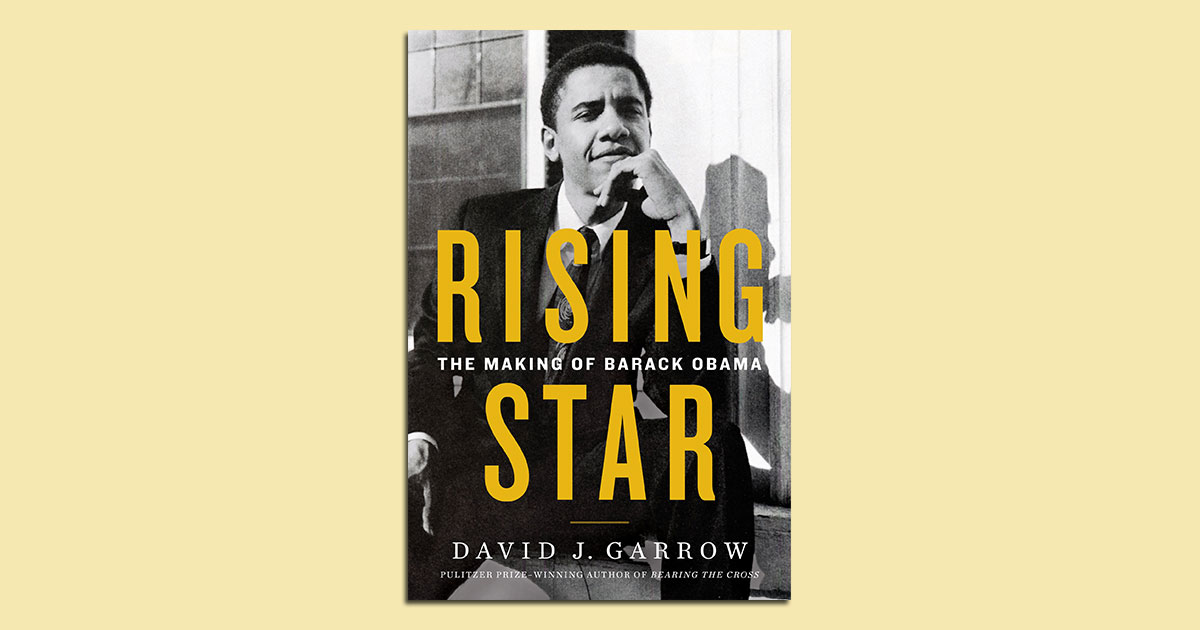
In a new book Rising Star: The Making of Barack Obama, Pulitzer Prize winner David J. Garrow documents the formative years of the 44th president. While the 1,460-page haute-tabloid tome came under critical fire (“overstuffed and ultimately unfair,” said the New York Times) before it has even been officially released, it does contain intriguing insight into the growing pains of a 20-something who would go on to become the leader of the free world, most vividly in the form of letters he wrote to friends.
Readers of Obama’s own books like Dreams From My Father will be familiar with the President’s years of soul-searching while evaluating the many paths open to him as an exceptional student and an ambitious worker. Yet a 1984 letter to a friend about one of his early jobs after college sheds light on the way he thought about his own intellect and potential at an early age:
I’ve emerged as one of the ‘promising young men’ of Business International, with everyone slapping my back and praising my work. There is the possibility that they offer the job of Managing Editor for one of the publications, which would involve a hefty raise but an extended stay … The style and substance of what I write [is such that] I can churn out the crap without much effort [yet] the finished product confronts me as an alien being, not threatening, but a part of another system, another sensibility … because of the position, the best I can hope for is a draw, since I have no vehicle or forum to try to change things. For this reason, I can’t stay very much longer than a year.
The young Obama continued on to explain he was spending his weeknight evenings writing and had recently finished work on a fiction piece that gave him “some good feelings doing it, even though it’s not top quality. I still have a certain ambivalence towards writing/art as a vocation.” As for his “political reading/spectating,” he wrote, “my ideas aren’t as crystalized as they were while in school, but they have an immediacy and weight that may be more useful if and when I’m less observer and more participant.”
In 1986, while working as a community organizer, he wrote to a former girlfriend about how his work ethic and drive were evolving:
The pace of my life has quickened these past few months; feel like I’ve broken through the lengthy ‘Buddhist’ phase — acting more forcefully, letting myself make mistakes. I’ve stopped eating peanuts, I’m working like a bitch, still writing when I have the time.
Romantic considerations were another complicated element of Obama’s early adulthood, and Garrow relies heavily upon interviews with a former girlfriend of Obama’s with whom he lived in Chicago. Sheila Miyoshi Jager was an anthropology student at the time, and though she describes the relationship as a passionate affair, a letter from Obama to a friend is marked by the kind of ambivalence present in many youthful relationships. (Jager is reportedly the basis for a composite character in Dreams of My Father.) Noting that they had recently moved in together, he describes Jager as a “very sweet lady, as busy as I am, and so temperamentally well-suited.”
Not that there are no strains; I’m not really accustomed to having another person underfoot all the time, and there are moments when I miss the solitude of a bachelor’s life. On the other hand, winter’s fast approaching, and it is nice to have someone to come home to after a late night’s work. Compromises, compromises.
Jager recounts a visit the couple made to her parents over Christmas 1986, when she says they were considering getting married. Obama got into a heated political argument with Jager’s conservative father, and her mother deemed them too young for marriage.
Garrow frequently goes out of his way to quote early friends and acquaintances who say they did not see Obama as black, but white — a bizarre and bigoted observation that seems to imply black people could not possibly share this young man’s interests, intellect and poise. Obama’s decision not to remain with Jager is framed as a rejection of white women (Jager is half-Japanese) in favor of the optics that would come from having a black wife when he entered public life. Though Garrow details the sexual chemistry between Obama and his white girlfriends, his relationship with Michelle is presented as cool and businesslike. Leaving aside the questionable taste of that decision, to any observer of the Obamas’ marriage, the characterization of their romance as a lukewarm, politically advantageous union is plainly out-of-touch and offensive.
Though Garrow continues to document Obama’s progress from Harvard Law School through his presidential campaign, the epilogue strangely returns to Jager who said in 2014 that her “past with Barack still feels very present,” and who still seemed to resent having been left out of his 1995 memoir. “Something changed in him after we went our separate ways,” she said, “as if the part of him that was so vulnerable and open (and sensual?) went underground and something else — raging ambition, quest for greatness, whatever just took over instead.”
Would that we could all take credit for our exes’ success by way of being dumped. The former First Lady probably isn’t taking any of this too hard, however — she and the President surely have more boring, loveless travel planned before they celebrate their 25th anniversary in October.
More Must-Reads from TIME
- Why Trump’s Message Worked on Latino Men
- What Trump’s Win Could Mean for Housing
- The 100 Must-Read Books of 2024
- Sleep Doctors Share the 1 Tip That’s Changed Their Lives
- Column: Let’s Bring Back Romance
- What It’s Like to Have Long COVID As a Kid
- FX’s Say Nothing Is the Must-Watch Political Thriller of 2024
- Merle Bombardieri Is Helping People Make the Baby Decision
Contact us at letters@time.com